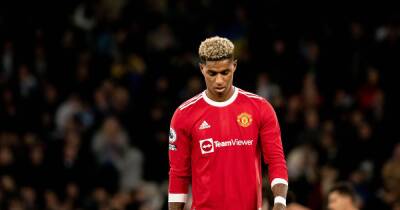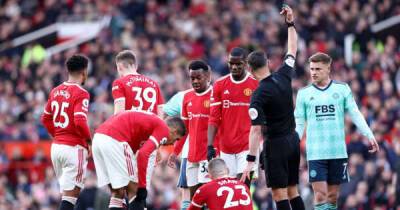Kick it Out: How discrimination in football is being tackled one-on-one
When England were beaten on penalties in the European Championships final last summer, the abuse was instantaneous.
Bukayo Saka and Jadon Sancho, who had penalties saved, and Marcus Rashford, who missed his effort, were subjected to a torrent of hate-filled messages on social media.
At the time, the racist abuse directed at England's black players was the most high profile, ugly example of it.
The UK Football Policing Unit said they received 600 reports of racist comments sent to the trio after the defeat. Of those, 207 were judged to be criminal.
Among them was 52-year-old Jonathon Best who livestreamed his abuse on Facebook. He was sentenced to 10 weeks in prison in November.
Widescale abuse has become commonplace in the game, leading Manchester City and England striker Raheem Sterling to call it a «disease» in society.
Crystal Palace forward Wilfried Zaha is among the leading voices that have has called for «action», «education» and «change».
A 12-year-old boy who sent racist messages to Zaha received education sessions «as part of the restorative justice process».
That education was delivered by anti-discrimination charity Kick it Out and is one programme that authorities are turning to, to tackle abuse.
Kick it Out's fan education and engagement manager Alan Bush deals with referrals.
«It's very much trying to get them to have a look at their behaviour and what they've said, to try and get them to understand that the action or the act that they've taken part in is offensive, is hurtful and is against the law,» Bush said.
«We've done some work with a 12-year-old on a youth conditional caution. He said something nine months ago and he has had three sessions. He has grown from the first session to the third session.»
The







